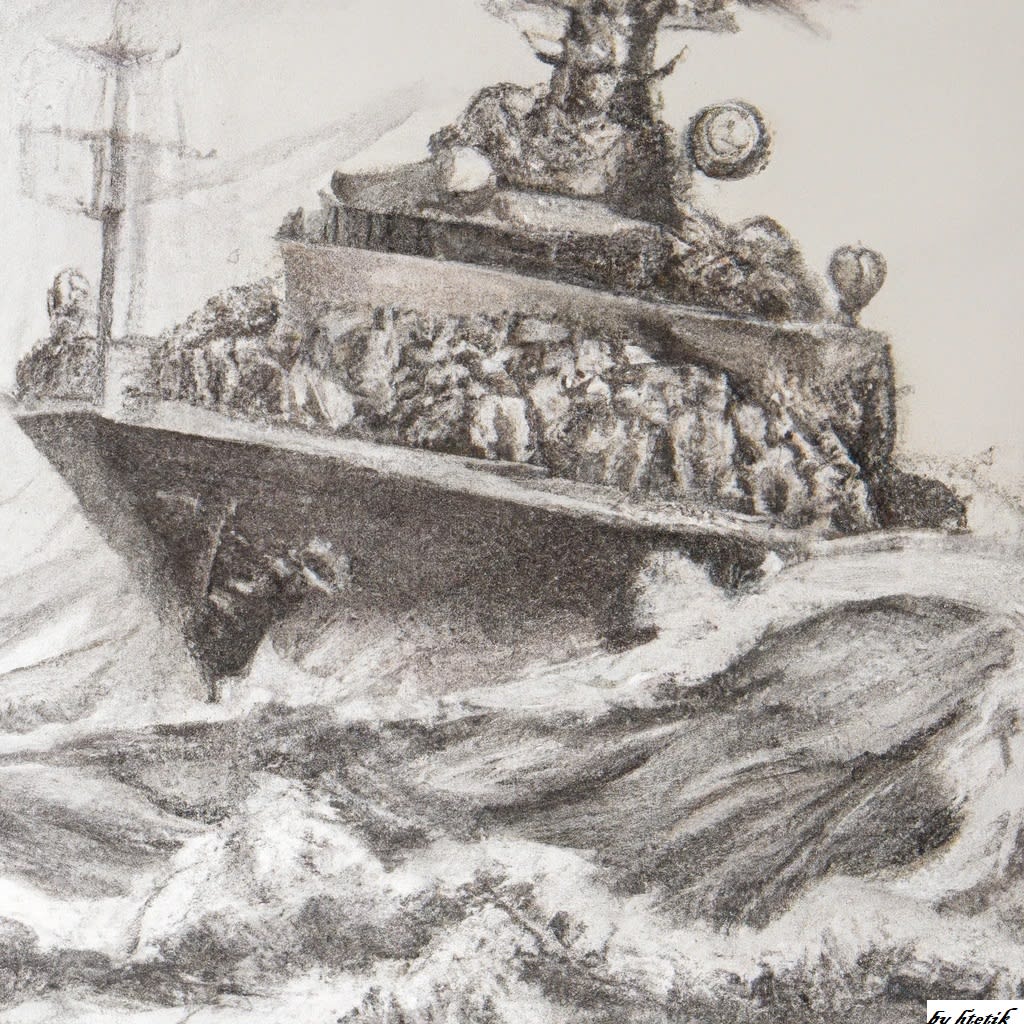The Challenging Journey of Navy Petty Officers: Battling the Rough Nature of the Sea and Professional Limitations
by htetik

The life of a naval petty officer is not for the faint of heart. It requires hard work, resilience, and a deep commitment to duty. However, the rewards are significant, and the experiences gained are unique.
Naval petty officers are the backbone of any naval operation. They are responsible for managing and maintaining the ships, overseeing the crew, and ensuring the safety and security of everyone on board. This work can be challenging and demanding, requiring long hours and often in harsh and dangerous conditions.
One of the greatest challenges of working as a naval petty officer is dealing with the unpredictable nature of the sea. The ocean can be calm and serene one moment, and then turn into a raging storm the next. This unpredictability requires constant vigilance and readiness, as well as the ability to adapt to changing circumstances quickly.
Another challenge faced by naval petty officers is the limited space and resources available on board ships. Living quarters are often cramped, and resources such as food, water, and equipment must be carefully managed to ensure everyone's needs are met. This requires a high level of organization and planning, as well as the ability to work well under pressure.
Despite these challenges, being a naval petty officer also has its rewards. One of the most significant benefits is the opportunity to travel and see the world. Naval ships often travel to different parts of the world, providing a unique opportunity to experience new cultures and meet new people. This exposure can broaden perspectives and deepen understanding of the world around us.
Another benefit of working as a naval petty officer is the opportunity to develop valuable skills and experiences that can translate to civilian professions. The work requires strong leadership, organizational skills, and technical expertise, all of which can be valuable in a variety of industries.
Finally, the bond formed between naval petty officers is strong and long-lasting. Petty officers must rely on each other in challenging situations, creating a sense of camaraderie and mutual respect. This bond can extend beyond the time spent at sea and form the basis for lifelong friendships and professional connections.
In conclusion, the life of a naval petty officer is not an easy one, but it is a rewarding and fulfilling career path. Petty officers have the opportunity to make a difference in the world, protect their country, and gain valuable skills and experiences that can benefit them both professionally and personally. They are the unsung heroes of the sea, and their work is essential to the success of naval operations.
Footnote: To become a naval petty officer, there are certain qualifications set by Naval Forces Command. These qualifications include graduating from high school or an equivalent educational institution, possessing military qualifications, meeting physical and mental fitness standards, and passing the required military examinations. Additionally, during the application process, candidates' other attributes such as leadership abilities, communication skills, and disciplined work habits are also evaluated.
It is very important to determine the topics we will cover in future articles by asking for the opinions of our readers. Here are some example topics that our readers could suggest:
1-How do naval petty officers make decisions during their duties?
2-When do they have the option to refuse orders?
3-How does the training process of naval petty officers work?
4-What topics are focused on and what is taught during their training?
5-In which professional fields can naval petty officers specialize?
6-What kind of education and experience is required for specialization?
7-How do naval petty officers participate in the peacekeeping missions of the Turkish Naval Forces?
8-What are their responsibilities in peacekeeping missions?
9-How does the family life of naval petty officers get affected?
10-How do they maintain relationships with their families due to their profession?
These examples could provide useful insights about the topics we can cover in our future articles. Of course, we are always open to the suggestions of our readers as well.
About the Creator
Enjoyed the story? Support the Creator.
Subscribe for free to receive all their stories in your feed. You could also pledge your support or give them a one-off tip, letting them know you appreciate their work.





Comments
There are no comments for this story
Be the first to respond and start the conversation.